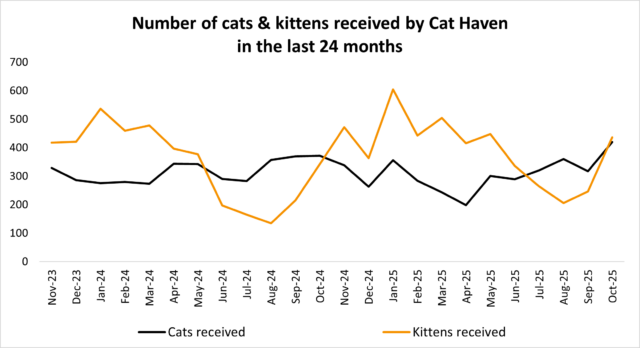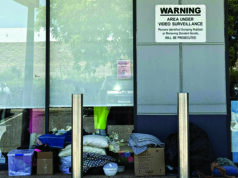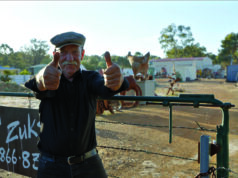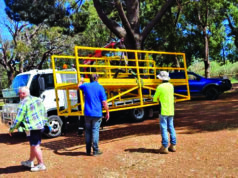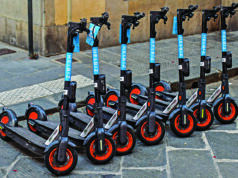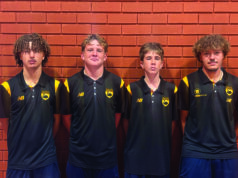A tiny kitten dumped on a busy Waikiki roadside has brought attention to a much wider problem affecting families in the City of Canning and the City of Gosnells, where rising numbers of unsterilised cats continue to place pressure on Cat Haven.
The organisation now takes in more than 930 cats and kittens a year from the two council areas, representing 11 percent of all incoming animals. This is higher than the previous year, which sat at 9 percent.
Cat Haven CEO Roz Robinson said Kiki’s case shows how important responsible ownership remains.
“Abandoning an animal is never acceptable. There is help available, and no animal should ever be treated as disposable,” she said.
Almost 75 percent of all cats and kittens arriving from Canning and Gosnells are classified as strays because they have no microchip or sterilisation. Cat Haven noted the large stray population is driven by roaming, unsterilised cats that are owned, semi-owned or are the offspring of previously owned pets.
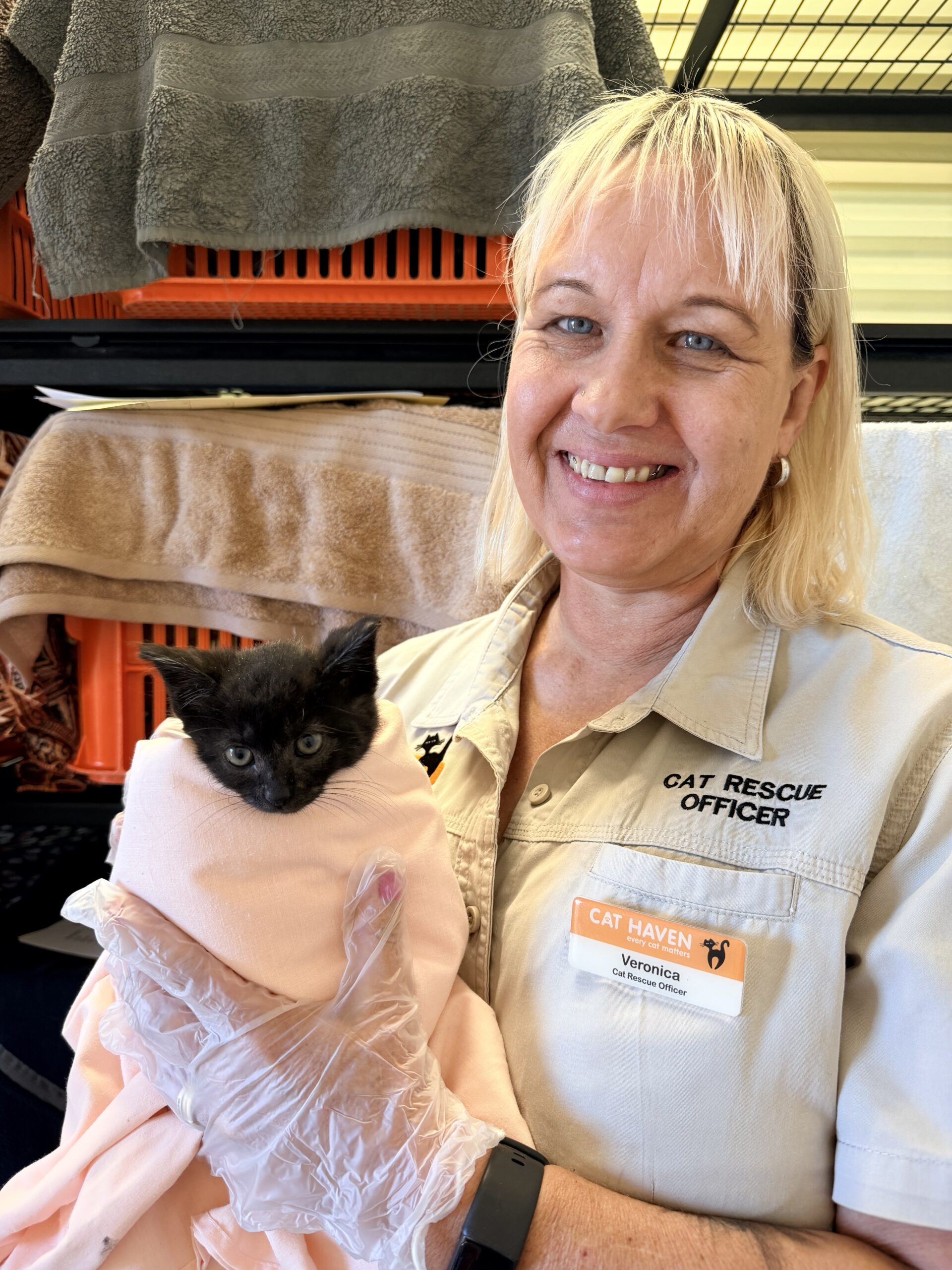
Charts provided by Cat Haven show intake from the two councils dipped to between 20 and 40 percent from June to August 2024, before climbing again through to October 2025. Over the last 24 months, monthly intake has ranged from 150 to 600.
Adult cat numbers have generally hovered between 300 and 400 a month, while kitten intake has shifted sharply between 150 and 600.
Unsterilised animals are behind much of the pressure. Sixty percent of owner-surrendered cats arrived without being sterilised, and 80 percent of stray or council-admitted cats were also undesexed.
Ms Robinson said many people do not realise how quickly cats can reproduce.
“Kittens can reach sexual maturity as early as four months of age. Female cats can go into heat every two to three weeks. This is why sterilisation is so important,” she said.

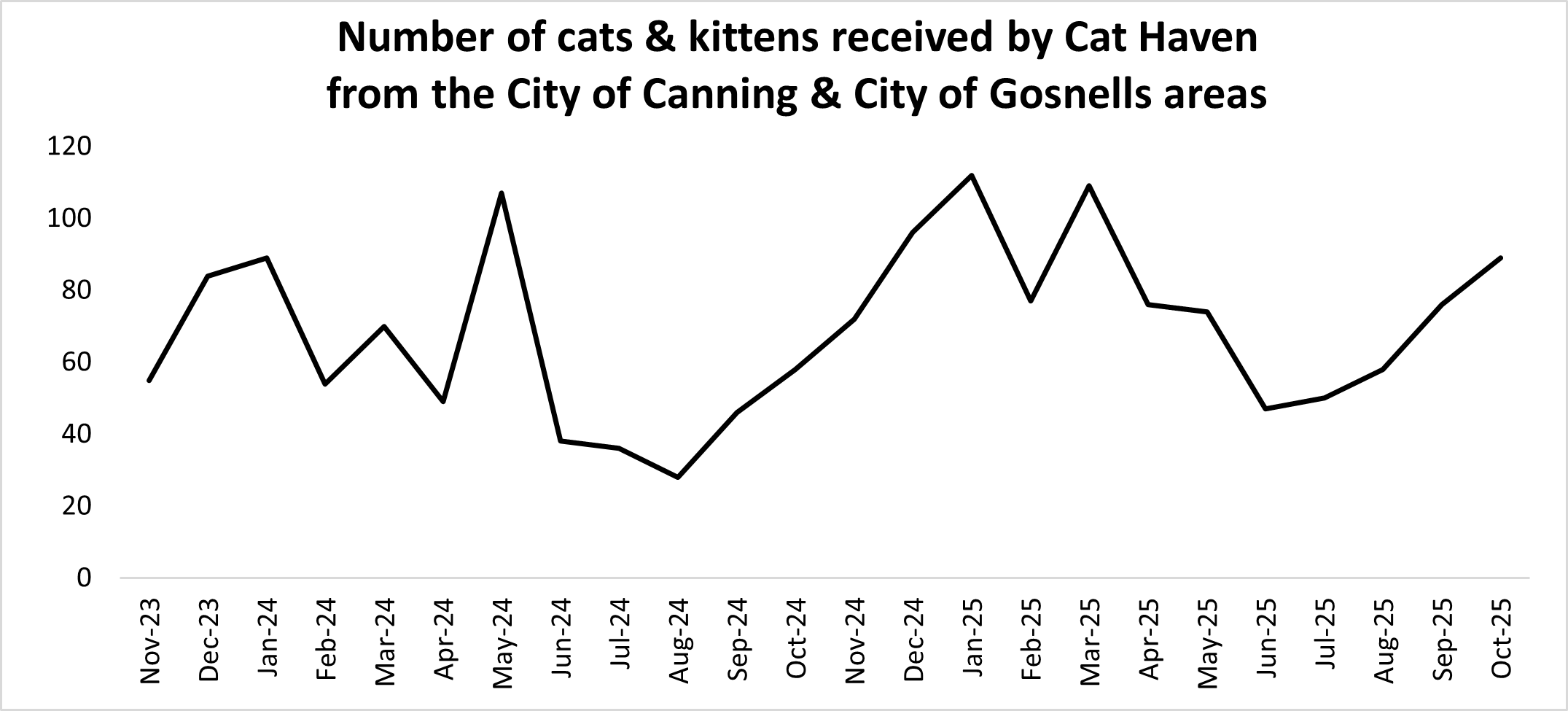
In 2024, the City of Gosnells signed a Memorandum of Understanding with Cat Haven to ensure stray cats impounded by council rangers can be transferred for vet care and rehoming if unclaimed. Cat Haven also runs a Last Litter program, where owners can surrender a litter for rehoming while the mother cat is sterilised and returned.
While there is limited evidence of a large rise in owner surrenders caused directly by cost-of-living pressures, Cat Haven has noticed more people handing in unsterilised cats and kittens because they already have pets at home. The organisation believes financial strain may be delaying timely sterilisation.
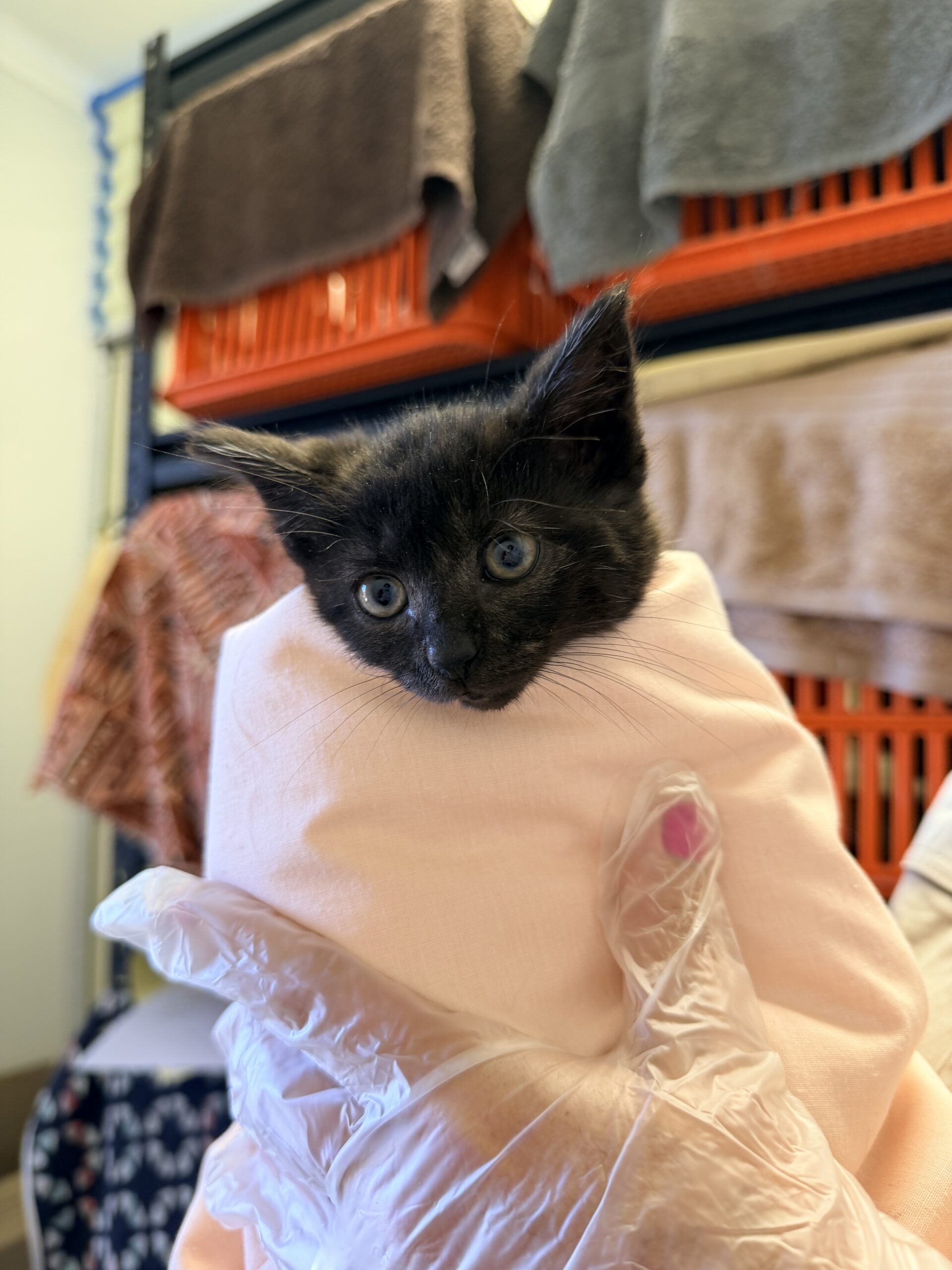
Despite caring for more than 8,000 cats and kittens every year, Cat Haven remains heavily dependent on donations. The State Government contributes 150,000 dollars annually, which covers 1.7 percent of its operating costs.
Ms Robinson said foster carers are important to keeping up with demand.
“Our foster carers are true lifesavers, but we urgently need more people to step forward,” she said.
Cat Haven noted that Kiki’s rescue is a reminder that one abandoned kitten is never just one story. Rising intake numbers in Canning and Gosnells show how quickly unsterilised cats can overwhelm families and frontline services, and why education and responsible ownership remain crucial.


